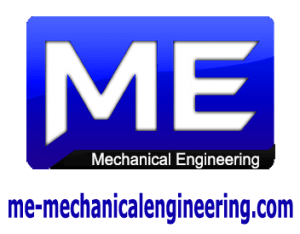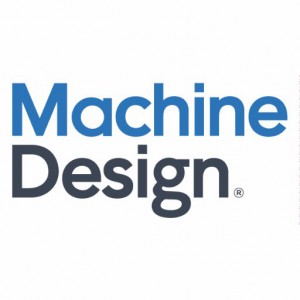Here are some daily life experiences, and their reasons only Mechanical engineering knows
google.com, pub-9736987660365427, DIRECT, f08c47fec0942fa0
- Drinking with a pierced straw.
It happens many times that, whenever we drink some cold drink with a pierced straw, we feel that we are not able to suck the drink, it doesn't matter hard we are trying only air is coming. This happens because air is rarer (opposite of denser) than cold drink (liquid) so it is easier to suck or lift air in comparison to that cold drink. Hence when we generate suction in straw air due to its less density automatically comes in straw and blocks drink's passage and makes us unable to enjoy the cold drink.
So if you get pierced straw, dip the hole in drink to avoid air suction.
2. Diesel engines don't have SPARK PLUGS.
Yes, you read that right, diesel engines don’t have spark plugs. So how combustion takes place in such engines ???? Here is the answer. The ignition temperature of diesel is quite lower in comparison to petrol. Rudolph diesel (inventor of diesel engine) used this property to create his engine. In the diesel engines during the suction process no fuel enters the cylinder, only air enters. During compression, the air is compressed at very high-pressure ratio due to which air's temperature increases and reaches the ignition temperature of diesel. Then just after compression diesel is injected in the cylinder block and as air posses, the ignition temperature of diesel, injected fuel ignites and hence combustion takes place.
What a beautiful creation of a genius mind, but Rudolph Diesel committed suicide after his invention of diesel engine, in a fear that his invention will not be recognized and hence he failed.
3. Why we sink when we jump in water straight but swims when we move our arms?
Ever wondered why we sink when we stay still in water bodies but start floating when we move our arms ?? The perfect answer is the Archimedes Principle. According to Archimedes Principle “If a body immerses fully or partially in a fluid than it displaces the amount of fluid equals to its own weight (immersed weight).” When we are still in water than the amount of water displayed is equal to our body weight and hence the upward buoyancy force is just equal to body weight, but when we swim we are displacing more water (bodyweight + water displaced by our arms ) so overall upward buoyancy force increases than our downward body weight hence we float.
4. If we open the door of refrigerator and keep it open will it be able to cool the entire room ?
The answer is NO. Because earlier the system for the refrigerator was the inside space of refrigerator and the room was surrounding and the system and surroundings are separated by rigid boundaries (refrigerator body) and also there is no heat interaction of system and surrounding directly. In this scene, heat is removed from the refrigerator (system) rejected in the room (surrounding) hence inside is cool. Now when door kept open the system crossed the boundary and interacted with surrounding here the whole room became system, now refrigerator is taking heat from system (room) adding work to it (compressor work { kind of heat }) and then rejecting it to the system only (room) because system and surrounding are same, so instead of cooling it is actually increasing the room temperature.
Do not try this at home SAVE ELECTRICITY.
5. Why doctors before giving an injection to patients blow some medicine in the air while keeping injection upward ??
Ever wondered why doctors do this every time before injecting someone ??? I will tell you why. The blood circulation in our body is kind of laminar flow (one layer above another layer flow with almost constant and slow velocity) and when doctors fill medicine in injection some air comes along with medicine, so what doctor does, he keep injection vertically upward and injects the air out and only medicine remains in injection. But why he does so? As I told blood flow in our veins is of laminar flow, if any air bubble enters in veins it will create turbulence inflow and get burst in veins which may cause vein rupture. And if the bubble reaches the heart it will burst their it may cause serious injury to the heart and can cause death. Hence to avoid these, doctors do so.
So, do not give an injection to anyone untile YOU ARE A MEDICAL PROFESSIONAL.
6. Difference between Hard and Tough
Many a time we use the words Hard and Tough together or shuffle them with each other, and think that both are synonymous, but this is not the truth. Both words have different meanings.
TOUGH: A material or surface is said to be tough when we apply some force and impact on it, it does not get fracture and absorbs all the impact (applies energy).
Hard: A material is said to be hard when it can resist any indentations (surface penetration), surface abrasion (scratches).
A diamond is hard but not tough, it can bear scratches but cannot bear impacts. It Could be broken into pieces by a hammer.
“Mechanical engineering is just common sense, but common sense is not so common that's why mechanical engineering feels harder …” . . . . . . . . . . - Madhavendra.
<script async src="https://pagead2.googlesyndication.com/pagead/js/adsbygoogle.js"></script>
<ins class="adsbygoogle"
style="display:inline-block;width:970px;height:250px"
data-ad-client="ca-pub-9736987660365427"
data-ad-slot="3334537714"></ins>
<script>
(adsbygoogle = window.adsbygoogle || []).push({});
</script>
<script async src="https://pagead2.googlesyndication.com/pagead/js/adsbygoogle.js"></script>
<ins class="adsbygoogle"
style="display:inline-block;width:300px;height:250px"
data-ad-client="ca-pub-9736987660365427"
data-ad-slot="4264476007"></ins>
<script>
(adsbygoogle = window.adsbygoogle || []).push({});
</script>







 Answer: Gears are
Answer: Gears are